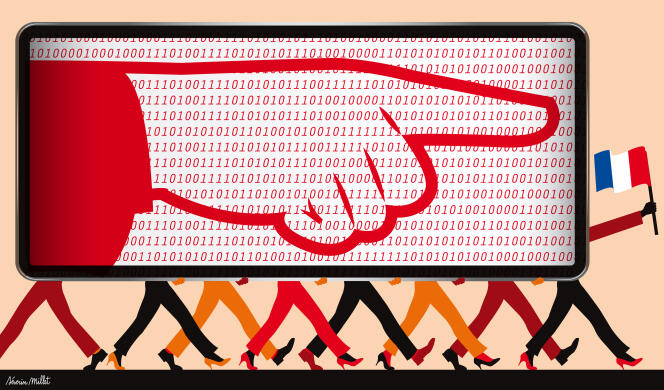


What should France do about artificial intelligence? In response to questions about this technology, the AI Commission submitted a report to Emmanuel Macron on Wednesday, March 13. The ton is "optimistic and positive, even if we know there are risks," said Anne Bouverot, the president of the Ecole Normale Supérieure's (an elite higher education institute) board of directors. Together with economist Philippe Aghion, Bouverot co-chaired the work of some 15 experts commissioned by the prime minister's office in September 2023.
Back in the spotlight since the launch of ChatGPT at the end of 2022, AI is presented as an "inescapable technological revolution," comparable to electricity or the automobile. If France were to overlook it, "we could not only miss out on the AI economy, leading to the increasing capture by others of our economic value, but also see the weakening of other business sectors," the authors warn, pointing to a risk of "economic downgrading." If nothing is done, we risk seeing the ship sail without us, said Bouverot, referring to past waves of digital innovation dominated by American companies.
Faced with these crucial challenges, however, the commission asserts that France can be "at the cutting edge" of AI. "It's an opportunity for France, for the economy and for working people, provided we prepare for it," assured the co-chair. In an "ambitious action plan," she proposes investing €5 billion a year for five years, in particular to finance the sector and the deployment of the technology in companies, but also to train employees and more.
While the report endorses the values of "sovereignty," "social dialogue" and "responsibility," it also aims to remove certain "obstacles." And a number of recommendations could prove controversial: facilitating the establishment of data centers in France; easing certain authorization procedures for the use of personal data, notably in health care or by the police; the creation of a €10 billion "AI fund"; the notion of reforming taxation to finance innovation; and the appeal to spread AI in public services, including education.
Some in cultural industries were also concerned that the corporate vision of AI was too present on the commission, made up of researchers, law expert Alexandra Bensamoun, trade unionist Franca Salis-Madinier and also representatives from Google (Joëlle Barral), Meta (Yann Le Cun) and Mistral AI (Arthur Mensch and Cédric O, former junior secretary for digital affairs).
Isn't the commission too optimistic about AI? "We're not naively optimistic. Our position is also a reaction to the alarmist discourse heard in 2023 on AI and its supposed existential risks for humanity," said Philippe Aghion. The report aims to "de-demonize AI, without idealizing it." "The potentials pointed out will depend on the public policies put in place," explained the economist.
You have 82.83% of this article left to read. The rest is for subscribers only.
